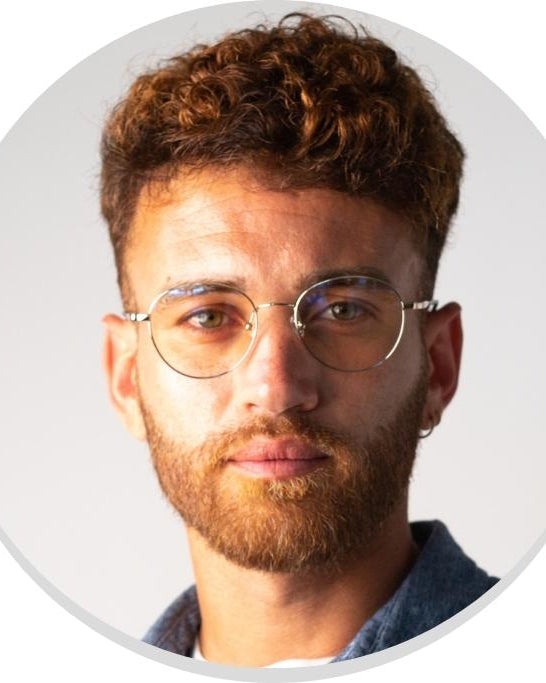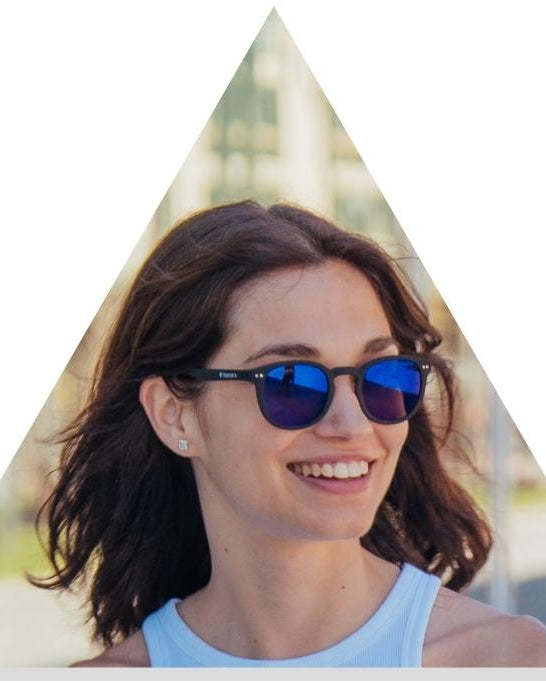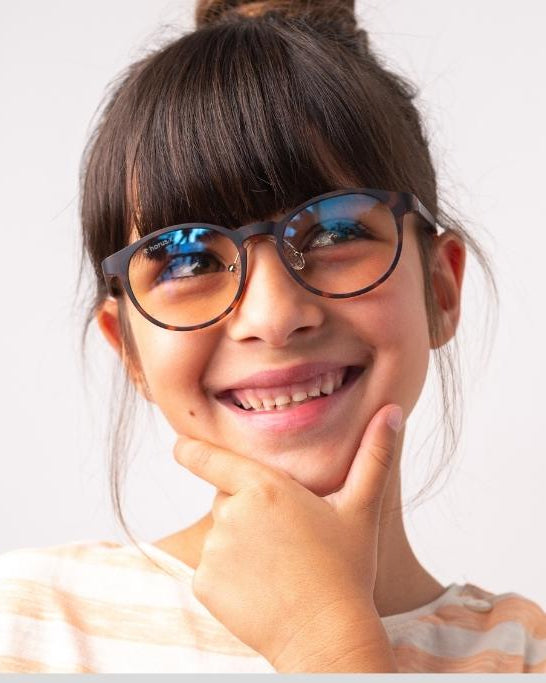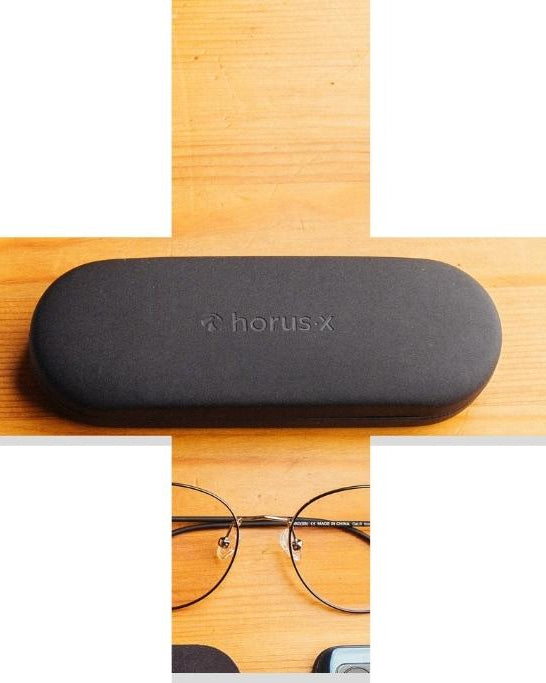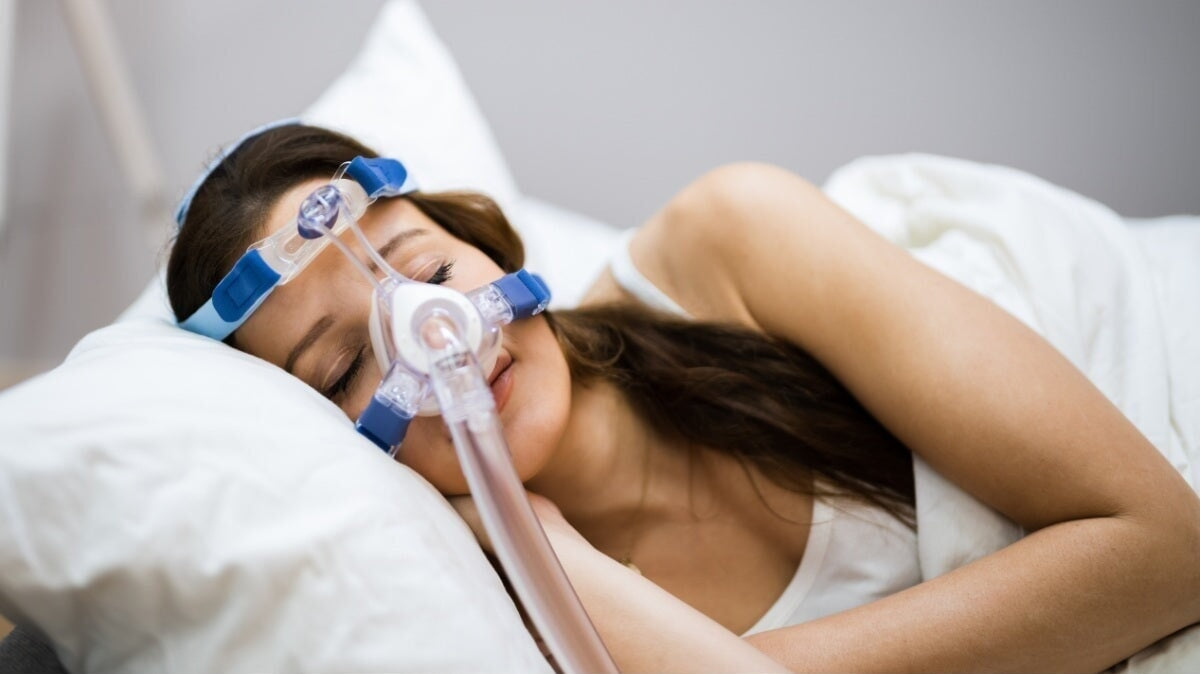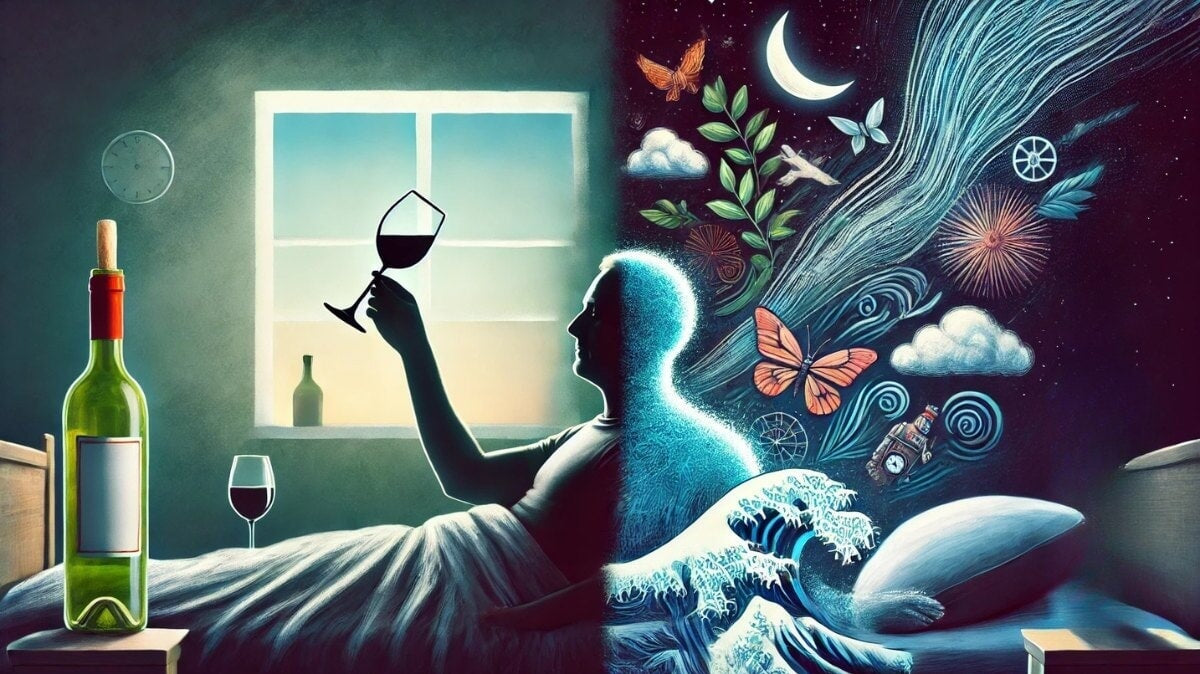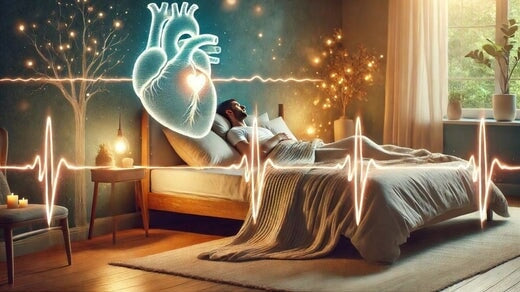Whether you spend your nights chaining rounds on Fall Guys or scrolling in bed on Instagram, you've probably noticed: light can harm your eyes, but also your sleep . We recently talked about it in our file to learn how to sleep better . Even a simple night light can have significant consequences. What mechanisms come into play? Do all light sources and colors have the same impact on sleep? In this article, we shed light (yes, it was easy) on the subject!
In this article :
-
💡 The effects of light on sleep
-
👎 When the light prevents you from sleeping
-
👍 When light helps you fall asleep
-
😴 How to regain quality sleep
The effects of light on sleep

The different sources of light that can disturb your sleep
Before talking about how light, its type and its intensity can have an effect on your sleep, let's remember that there is not one but several types of light coming from different sources:
-
☀️ Daylight , composed of the light spectrum containing several colors (wavelengths) with very different effects depending on the time of day,
-
🏘 Public artificial lighting,
-
💡 The artificial lighting of our interiors and in particular the LEDs , source of artificial blue light,
-
📱 Screen light (computer, phone, tablet, television ), mostly composed of blue light too.
Whether we like it or not, we are therefore permanently exposed to light. This observation having been made, we can therefore set about understanding the real impact of light.
Light regulates (and disrupts) the sleep/wake rhythm
The key point to understand is that your body follows a natural rhythm influenced by light on a daily basis: this is the circadian rhythm .
👉 Maintaining this day/night rhythm is the key to restful sleep and good health.
How does it work in detail?
To summarize one of the main phenomena, the light captured by our eyes via the photosensitive cells of the retina will trigger the production of hormones depending on the intensity and wavelength of the light:
-
🌤 Morning light, richer in blue light, stimulates awakening by reducing the production of melatonin, the famous sleep hormone, and promotes the production of cortisol to prepare you for a day full of activities
-
🌅 Conversely, in the evening, the drop in brightness sends our brain the signal that it's time to rest, via the pineal gland which produces melatonin. The amount of hormone therefore drops to make it easier to fall asleep.
The problem arises when we continue to expose ourselves to light after sunset, disrupting the circadian rhythm and therefore the secretion of melatonin . The fact of not being sufficiently exposed to natural light during the day combined with overexposure to artificial lights at night then leads to sleep disturbances.
When the light prevents you from sleeping

As you will have understood, blue light is the big boss to overcome to find better sleep: because it is more intense, it increases the time to fall asleep and impacts the quality of your nights by inhibiting the production of melatonin.
But beyond exposure to blue light which disrupts the circadian rhythm, know that the slightest source of light at night deactivates the secretion of melatonin.
🛋 Basically, if you try to fall asleep with your bedside lamp on after an episode of The Last Of Us, it's not (only) the fear of the infected that keeps you awake!
The slightest diode in your bedroom, public lighting a little too present in front of your window or even the screen of your smartphone which lights up at the slightest notification will have a negative role on your ability to fall asleep and on the quality of your sleep.
👉 To give you an idea : just the light of a candle can halve your melatonin level. The light from an e-reader can delay your falling asleep by more than 20 minutes! (see the Monash University study or an interesting CNRS study on this subject which goes into detail on the question ).

It is therefore essential to go to bed and sleep in complete darkness (if you do not remember a single thing from this article, it must be this advice!)
💡 Namely: light and sleep cycles
Do you think your nights are a long calm river? Think again! In reality, your sleep is animated by several successive cycles, with very different phases.
During the so-called "light sleep" phase, you may be awakened by the slightest stimulation. So that the cycles follow one another and that your night is not interrupted, it is important to establish an environment conducive to sleep, with the least disturbance possible.
🕯 Note that some people are more sensitive to light than others: while some sleep more easily in a bright environment, others will be bothered by the simple glow of the night light of an electronic device on standby.
When light promotes sleep

As we said above, light is an essential component of the circadian rhythm and it is essential for our organism. And it is not by living in a dark cave that you will solve your sleep problems, quite the contrary!
During the day, it is essential to be exposed to natural light to find a healthier rhythm of life.
- 🌅 2 to 10 minutes of sun at sunrise
- ☀️ 30 to 40 minutes of natural light in the morning
It's proven, daylight plays on our mood and our morale : seasonal depression linked to the lack of light in winter is now a recognized subject.
This is where light therapy can come into play (even if it does not replace natural light, it is better than nothing in winter): by reproducing natural light and focusing on very specific wavelengths, we can induce certain benefits on our body.
- 🌄 Dawn simulators aim to wake you up in a natural way by reproducing the gradual light of sunrise
- 🔴 Twilight simulators based on the effects of red light (well, above all on lowering the brightness while seeing something in it) to facilitate falling asleep are therefore increasingly widespread.
💡 Namely: blue light is also used in phototherapy, to improve concentration or fight acne for example!
How to get quality sleep
👉 Now that you know everything about the influence of light on sleep, here are our tips for getting back to restful sleep.
Increase your exposure time to natural light
Get your body back on a natural circadian rhythm by regularly exposing yourself to daylight: we stop playing vampires holed up in a mansion and we go out for some fresh air 🧛
In addition to the benefits on your sleep, you will see significant positive effects on your physical health and well-being.
Reduce your exposure to light and especially blue light at the end of the day
Blue light increases the time it takes to fall asleep and should be banned from your evenings. In other words, stop screens at least 3 hours before going to bed and favor lighting based on warm light to prepare your body for the sun.
And if you care too much about your PC gaming evenings, we recommend that you protect yourself with our range of effective and stylish anti-blue light gaming glasses .

💡 Of course, remember that reducing your exposure to blue light will also have a beneficial influence on your health: reduction of eye fatigue, dry eye syndrome and other cognitive and hormonal disorders related to overexposure to screens.
Mandatory lights out
Repeat with us: for quality sleep, the best is to sleep in complete darkness! (And besides, it rhymes 🎵)
Our advice is therefore to limit the sources of light as much as possible to ensure a restful sleep: no more electronic devices in charge, mobile phones on the bedside table (many studies also warn of the risks to sleep near his switched on phone ) or other light disturbances!
For those who have a public lamppost next to their room, we recommend opting for blackout curtains and/or a sleep mask to make sleeping in the dark.
Stick to regular hours
Give your internal clock a boost by finding a healthier rhythm and regular sleep schedules.
⏰ Set a bedtime schedule and try to stick to it as much as possible . Thus, your body will acquire mechanisms and habits by adjusting to this rhythm and you will find the way to sleep more easily.
Limit stress
We don't teach you anything if we tell you that stress and anxiety are among the most common causes of sleep disorders . Sleep problems, sleep between cuts, insomnia... many are the impacts of stress on our nights!
Knowing this, we quickly understand the importance of relaxation to sleep well. A way to find a more serene sleep: try one of the many types of meditation and find the one that suits you best 🙏
Adopt a healthy lifestyle
There is no secret, if you want to sleep well you have to take care of yourself on a daily basis.
-
🍽 Space dinner and bedtime by at least 3 hours to avoid digestion problems that could hinder your sleep.
-
🥗 In the evening, favor an easy-to-digest meal: light, balanced, not too spicy and not too greasy.
-
🚰 Drink water during the day and on a regular basis: hydration, elimination of toxins. However, we will advise you to gradually reduce the evening at the risk of having to get up several times a night.
-
🍹 Limit alcohol in the evening: even if you have the impression that you will find better sleep, in reality, alcohol consumption increases the number of nocturnal awakenings and disrupts paradoxical sleep.
-
☕️ Reduce your coffee consumption: caffeine, in addition to being a stimulant whose effects can last several hours, has a harmful impact on sleep cycles. In practice, it is better to consume caffeinated drinks at the start of the day rather than in the afternoon.
-
🏃 Practice a regular sports activity: not only does sport help to fight stress, but it also has a positive influence on the deep sleep phase.
The final word: light and sleep
🧐 How does light affect our sleep? By disrupting the circadian rhythm, light hinders falling asleep and the quality of sleep.
🖥 Blue light disturbs sleep? Prolonged exposure to blue light from screens directly influences the regulation of melatonin secretion: you will have more difficulty falling asleep... and staying asleep! We therefore advise you to protect yourself by reducing your screen time or by getting blue light blocking glasses.
🌑 Complete darkness? And yes, it is recommended. The slightest light stimulation is enough to trigger the production of melatonin and therefore make your body believe that the night is over!
PS : Note that the effects of light go much further than a bad night's sleep. By reducing our restorative sleep, the long-term consequences can be serious: mood disorders, diabetes, obesity... The list is long. So think about protecting yourself now.


